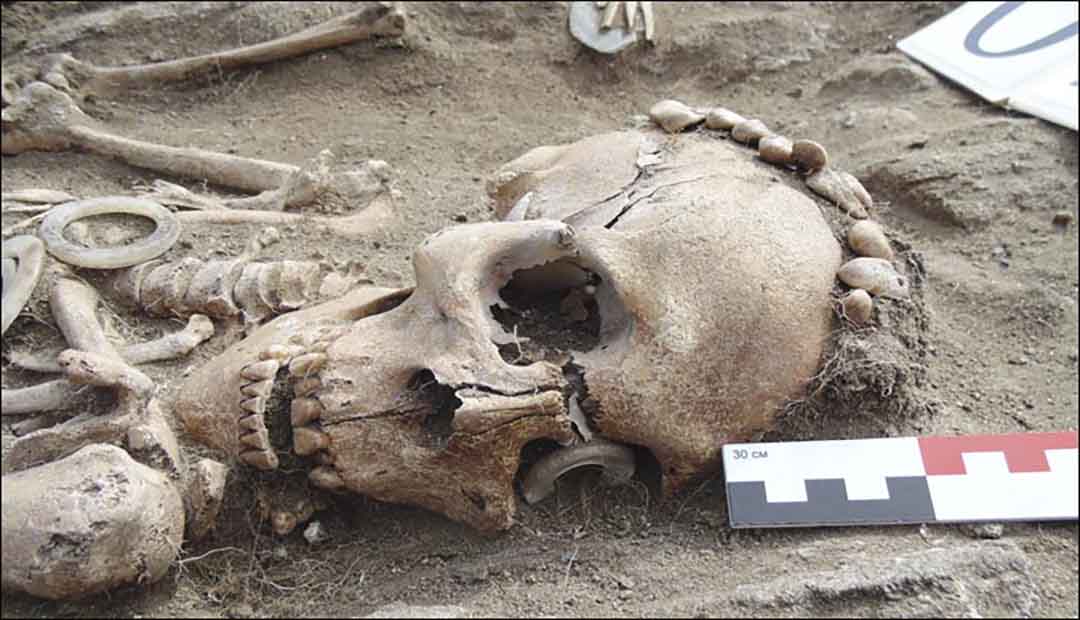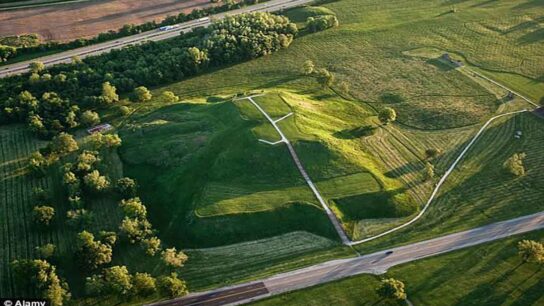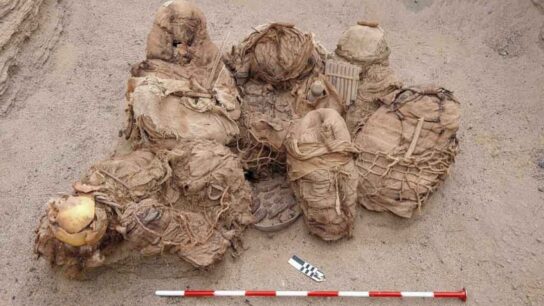Holding Hands for 5,000 Years, a Couple with Mysterious Jade Rings and Dagger
Bronze Age burial near Lake Baikal intrigues archaeologists who have not yet revealed the contents of the leather pouch between man’s kneecaps.
Experts speculate that this ancient couple is an elderly man and his wife or concubine, buried for eternity in a show of affection. There are some unique aspects to the couple who are believed to be from the Bronze Age Glazkov culture.
The man’s skeleton had a ring made of rare white jade over one eye socket. Three more were on his chest. Archaeologist Dr Dmitry Kichigin said: ‘It was probably somehow connected with their ideas about the afterlife.’
Samples of the bone of the couple have been sent to Canada for radiocarbon analysis, but the Russian team involved in the excavations believes the couple to be 4,500 to 5,000 years old.
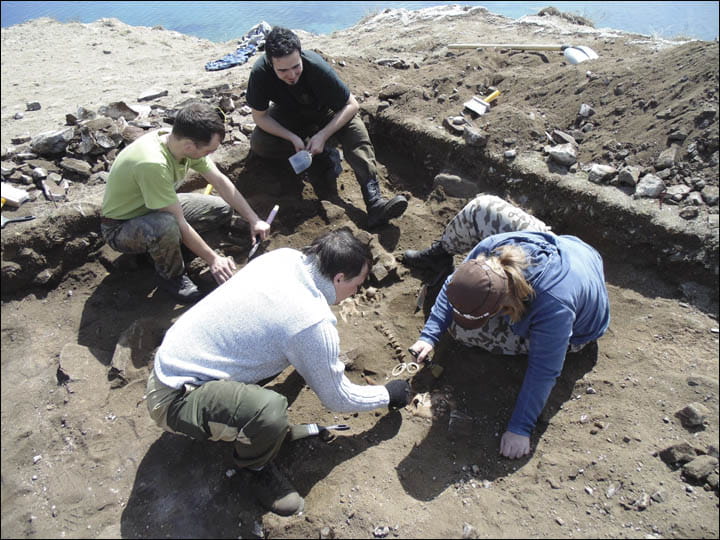
‘In the grave we found male and female skeletons, lying on their backs, heads to the west, hand in hand,’ he said. The site is a sacred burial place since Neolithic times overlooking the waters of Lake Baikal, the oldest and deepest lake in the world.
The male skeleton is complete but rodents destroyed the upper part of the female. Near the woman were a ‘massive’ knife made of jade, some 13 centimetres in length and 7 cm in width.
Pendants of red deer and musk deer teeth were found on the male skull, and around the feet. Most likely, they decorated the hat and footwear.
‘Were they relatives, or an owner and his concubine?’ asked the archaeologist. For now, the answer is unclear: he would like to conduct DNA tests to check if the pair were related, but this appears to be too expensive.
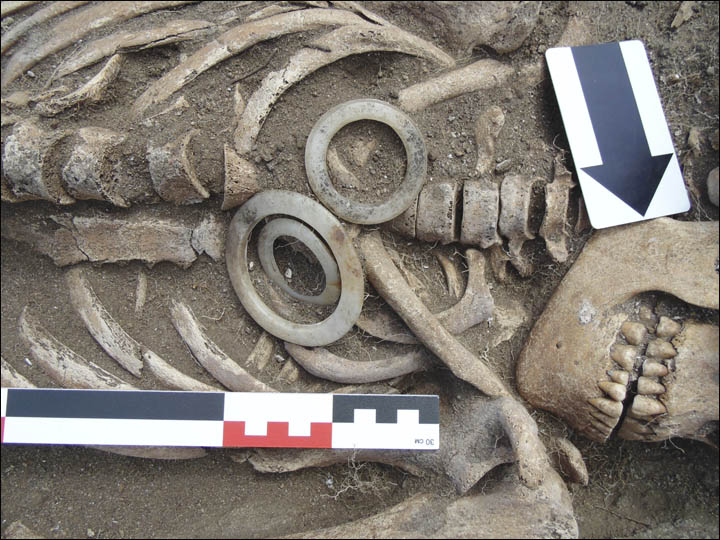
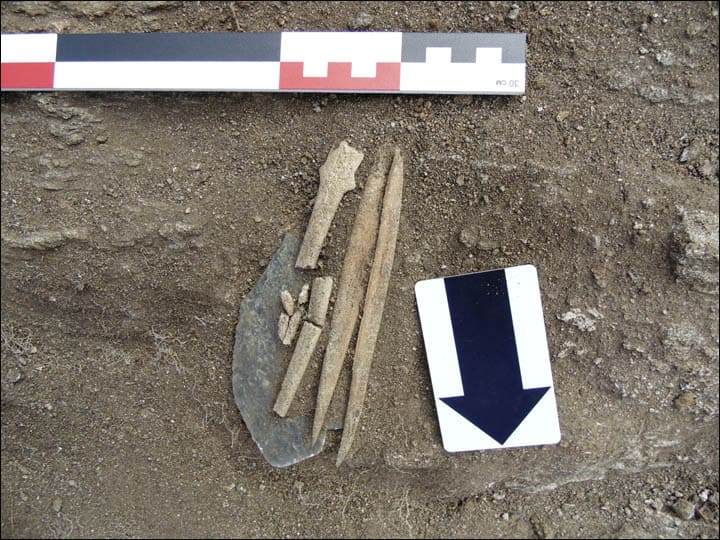
The burial unearthed this summer is located at a cape on Maloe More, the strait that separates the mainland and the Olkhon island, close to Chernorud settlement, some 260 kilometers northeast of Irkutsk.
The precise location is being kept secret, for now, to avoid amateur diggers wrecking a site that is likely to contain more burials, possibly older than this one.
‘We were lucky to find at least one skeleton in excellent condition, with implements and decorations – it is the dream of many archaeologists,’ said Kichigin. ‘It would be very interesting to find out the purposes the massive jade knife, which we found near the woman, was used for.
‘We also found some metal implement in a small leather bag between male’s kneecaps.’ The analysis will begin with the findings in the autumn.
‘The cape, where we conducted excavations, was a sacred place for ancient people,’ he said. It was not a settlement but was used for religious rites and as a graveyard from ancient times.
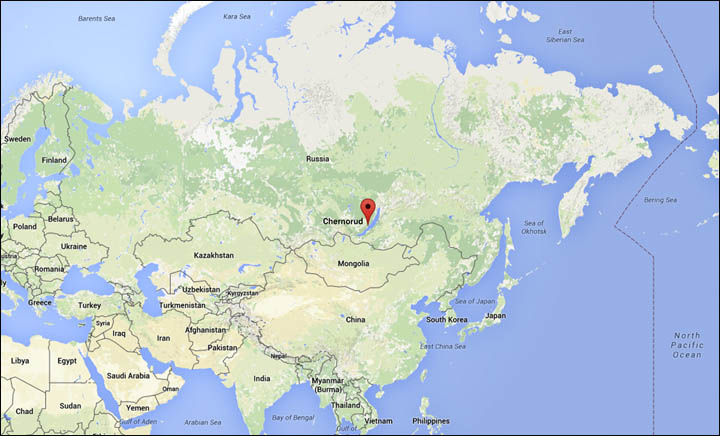
‘We can expect a lot of interesting discoveries on this archaeological site, so we plan to continue our work next year.’
The archaeological team led by Dr Kichigan is from Irkutsk National Research Technical University, with the assistance of Yuliana Yemelyanova, from the Laboratory of Archeology, Paleoecology, and Life Support Systems of the Peoples of North Asia.
